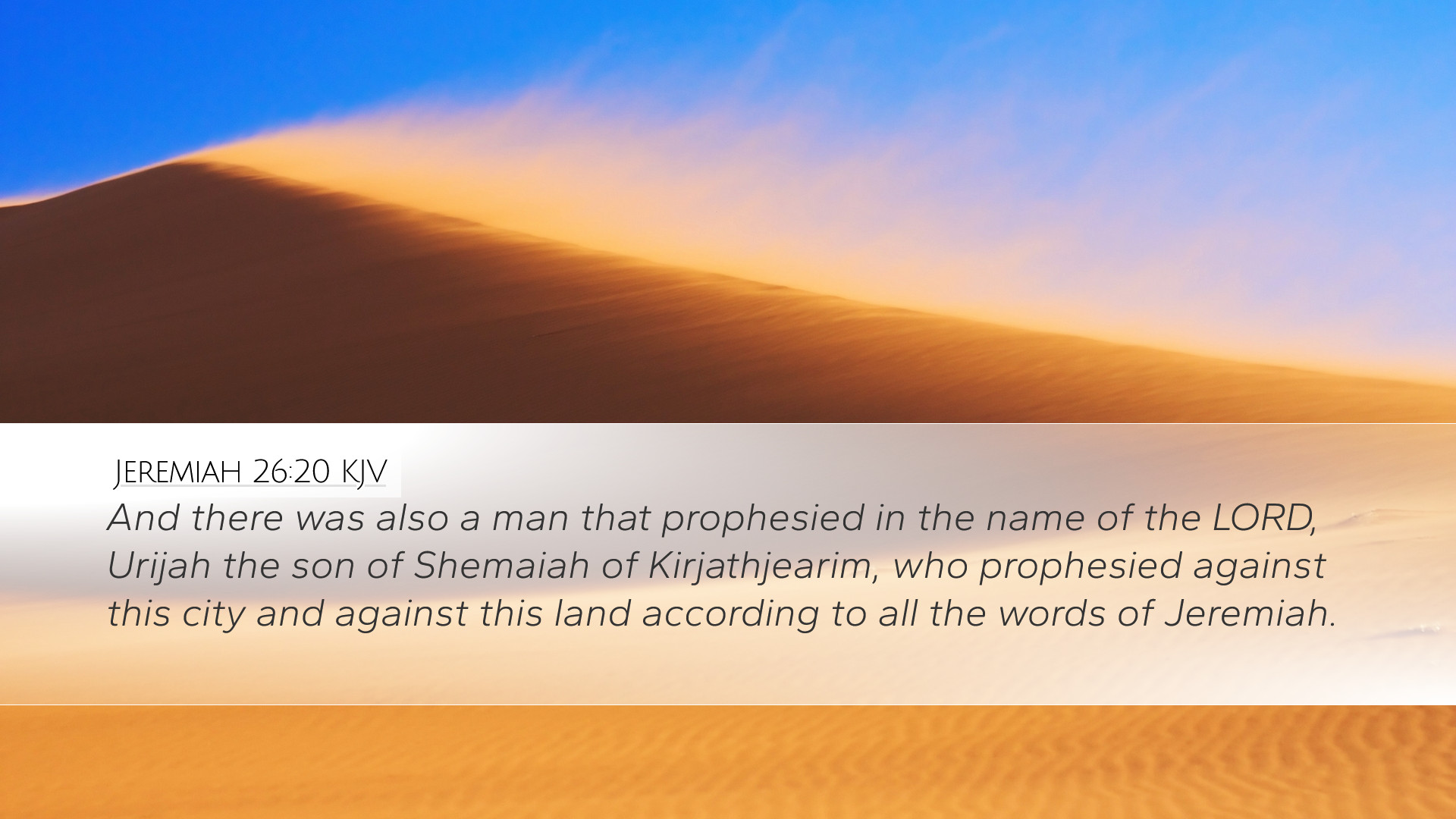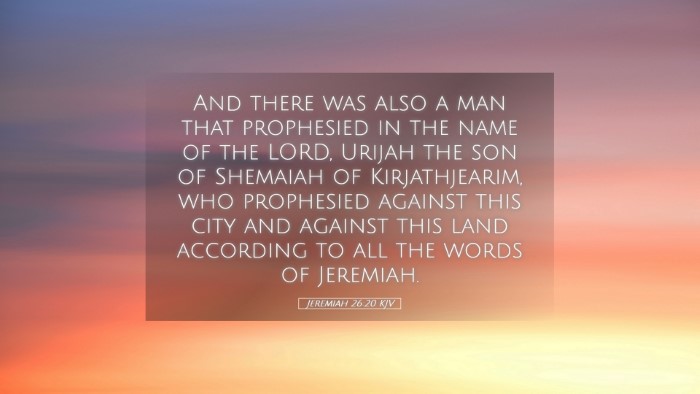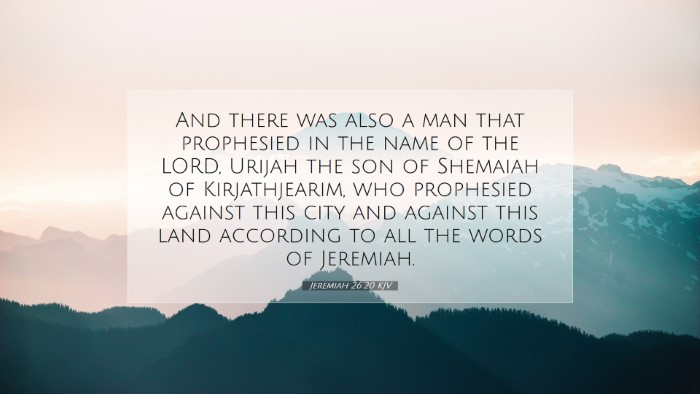Bible Commentary on Jeremiah 26:20
Verse Context: Jeremiah 26:20 describes the experience of a prophet who faced opposition and the consequences of speaking God's truth during a time when the nation was in moral and spiritual decline. This verse serves as a reference point for understanding the nature of prophetic ministry and the inevitable resistance that comes with it.
Exegesis of Jeremiah 26:20
Jeremiah warns of coming judgment and calls for repentance, yet amidst his ministry, he also encounters a fellow prophet, Uriah, who faced dire consequences for proclaiming a similar message. The individual nature of prophetic callings, the societal context of Jerusalem, and the challenges faced by those who stand as messengers of God are all illuminated through this verse.
Insights from Public Domain Commentaries
Matthew Henry's Commentary
Matthew Henry, in his commentary, notes that the fate of Uriah serves as a poignant reminder of the dangers faced by the faithful in a corrupt society. He emphasizes that Uriah's obedience to God led him to speak out boldly against the king, yet this boldness led to his untimely death. Henry stresses the importance of steadfastness in the face of severe opposition and underscores a significant point concerning God’s sovereignty over life and death.
- The Danger of Prophetic Ministry: Henry highlights that the life of a prophet is fraught with danger, especially when their messages confront authority. Jeremiah's witness is contrasted with Uriah’s tragic end, reminding believers of the potential costs of discipleship.
- Faithfulness to God: The commentary encourages a steadfast commitment to speaking the truth of God's word, regardless of the backlash or consequences. Uriah's story exemplifies the perilous path of faithfulness.
Albert Barnes' Notes
Albert Barnes provides a valuable analysis of Uriah's circumstances, noting that despite the aggressive opposition he faced for his prophetic messages, his ministry mirrors that of Jeremiah in its content and message. Barnes emphasizes that Uriah's plight teaches that even faithful servants of God may face persecution and death.
- The Role of Civil Authority: Barnes points out the role of King Jehoiakim in Uriah's demise, suggesting that the resistance by civil powers against God's messengers is not an isolated incident but a recurring theme in biblical history.
- Encouragement for Contemporary Believers: Barnes conveys a message of encouragement to present-day believers, reinforcing that trials faced in following God are not uncommon and, indeed, fulfill the greater narrative of the faith.
Adam Clarke's Commentary
Adam Clarke expands on the context of Uriah, discussing his geographical roots and prophetic alignment with Jeremiah’s ministry. Clarke notes the historical significance of Uriah’s judgment, reflecting the collective apostasy of Israel, which often led to the persecution of true prophets.
- Uriah versus Jeremiah: Clarke contrasts the public reception of Jeremiah with Uriah’s fate, suggesting that while Jeremiah found precarious sanctuary, Uriah was ultimately forsaken, underscoring the complexities of prophetic ministry.
- Lessons on Perseverance: Clarke emphasizes perseverance in the face of adversity, explaining how God ultimately validates the words of His prophets, even if they do not appear successful in secular terms.
Theological Reflections
The events surrounding Jeremiah 26:20 raise critical theological reflections regarding divine justice, martyrdom, and the prophetic voice. Pastors and students studying this passage should consider the following themes:
- Divine Sovereignty and Human Agency: Understanding the balance between God's control over history and the free will of individuals, as seen in the roles of Jehoiakim and Uriah.
- Cost of Discipleship: An examination of what it means to follow Christ today in light of historical prophets, challenging students to consider their own responses to social and ecclesiastical pressures.
- Persevering Faith: Exploration of how Uriah’s story can inspire resilience amidst trials, encouraging believers in their own prophetic roles within contemporary society.
Conclusion
Jeremiah 26:20 encapsulates the perils faced by prophets speaking against prevailing injustices and disobedience. By engaging with the insights gleaned from respected commentators like Matthew Henry, Albert Barnes, and Adam Clarke, modern readers can draw strength, wisdom, and guidance from the struggles of Uriah and Jeremiah. The echoes of their message remain vital for today’s church, reminding believers that fidelity to God's call often comes at a cost, but that such faithfulness aligns them with the eternal truth of God’s kingdom.


